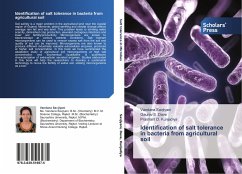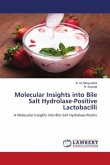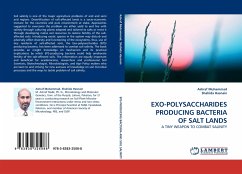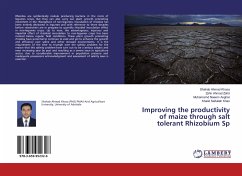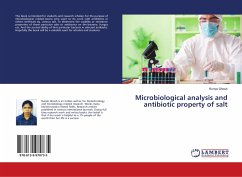Soil salinity is a major problem in the agricultural land near the coastal region of Gujarat. Moreover, global warming and climate change affects average rain fall and sea level. This problem leads to drinking water scarcity, diminished crop production, elevated contagious infections and lower soil fertility/productivity. Microorganisms are known to tolerant/adapt at various extreme conditions. Salt tolerant microorganisms can be used to remove excess salt from the soil and quality of soil can be improved. Microorganisms are also known to produce different industrially valuable extracellular enzymes, produced at higher salt concentration. In this book we have summarized the adaptation study of agricultural soil microorganisms at high salt concentration and biochemical (qualitative & quantitave) characterization of extracellular secreted enzymes. Studies elaborated in this book will help the researchers to develop a sustainable technology to revive the fertility of saline soil, utilizing microorganisms as a tool.
Bitte wählen Sie Ihr Anliegen aus.
Rechnungen
Retourenschein anfordern
Bestellstatus
Storno

